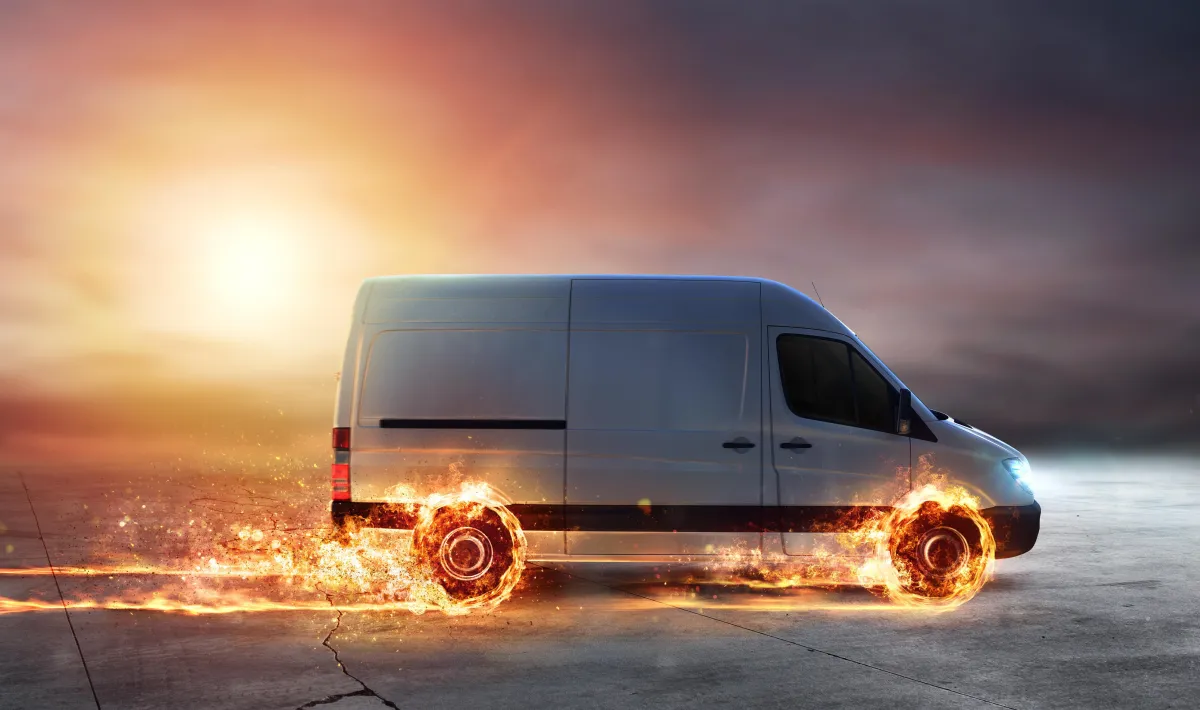
Tax on buying or selling tools and vans
Buying or Selling Vans and Tools? Here’s How to Avoid a Tax Nightmare
Let’s be honest – no one buys a van or a new drill set thinking, “Ooh, can’t wait to work out the tax on this.” But if you don’t get it right, HMRC could be rubbing their hands while you’re left wondering where your cash went.
So, whether you’re upgrading your trusty Transit, flogging a set of tools, or buying second-hand gear off a mate, here’s how to stay out of trouble – and maybe even save a bit of tax while you’re at it.
🚐 Buying a Van? Here's What to Watch
If you're buying a van through your business, good news – you might be able to claim:
✅ Capital Allowances
That’s tax speak for “you can knock some or all of the cost off your profits before tax.”
In 2025, most businesses can use full expensing – meaning you get 100% tax relief in the year you buy it (as long as it’s brand new and qualifies).
🧾 Claiming VAT
If you're VAT-registered and the seller is too, you might be able to claim the VAT back – but only if the invoice shows it. No invoice = no VAT reclaim.
⚠️ BUT… watch for these:
If it’s a car, not a van (HMRC loves grey areas), the rules are totally different – way less generous.
If you use it personally too (e.g. for the school run), there could be a benefit-in-kind tax charge. Even just a little personal use can trigger this.
🧰 Buying Tools or Equipment?
Same deal. If you buy tools for business use:
Claim capital allowances (full expensing if new) for more expensive items.
Claim VAT if there’s a proper VAT invoice (be careful - most ebay sellers aren't VAT registered or don't provide a VAT receipt)
If bought second-hand, keep proof of purchase (eBay screenshot doesn’t count if it doesn’t show the seller’s VAT number!)
Bonus tip: Hand tools, ladders, generators – all count, but they must be for business use. If you’re buying a chainsaw for the garden, you’re on your own!
💸 Selling Vans or Tools? Here's the Tax Bit Most People Miss
Sold your van? You might owe tax.
If you’ve claimed capital allowances on a van and later sell it, you may need to declare a balancing charge – in other words, pay tax on part of the sale proceeds.
Example:
You buy a van for £20k and claim 100% relief
3 years later, you sell it for £8k
That £8k gets added back to your taxable profits – HMRC wants their cut
Sold tools? Less of a drama…
Usually the values are lower, but same principle applies. If you claimed tax relief when you bought them, HMRC expects you to cough up a bit when you sell them – unless you scrap them or sell for peanuts.
🧾 What About Part-Exchanges?
Classic trade move – you swap the old van for a newer one and pay the difference. Easy for you, messy for tax.
You’ll need to treat it as:
A sale of the old van (declare the value you got for it)
A purchase of the new one (declare full cost before trade-in)
Miss this step and your accounts could be wrong – and HMRC doesn’t take “I didn’t know” as an excuse.
🛑 Red Flags That Trigger HMRC Attention
No clear records of what was bought or sold
Claiming for a van that’s obviously a car (hello, Range Rover)
Claiming VAT on tools bought off Gumtree or Ebay with no invoice
Personal use of “business” vehicles not declared
Claiming new tools every year, selling old ones, and forgetting the tax bit
Final Word: It’s Not About Paying More Tax – It’s About Doing It Right
Buying and selling vans or tools isn’t complicated if you know the rules. But the moment you guess, fudge, or forget to keep receipts, you’re giving HMRC a reason to poke around.
If you’re planning to:
Buy a van
Trade one in
Sell off some gear
Or wonder what you can claim…
…have a quick word with your accountant first (that’s us). We’ll help you get it sorted, so you can focus on the tools – not the taxman.
Need help with a van or tools purchase?
We’ll tell you what you can claim, what to watch for, and how to keep it all above board. Drop us a message and we’ll sort it.